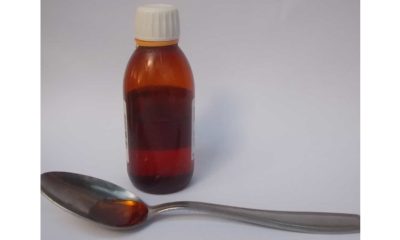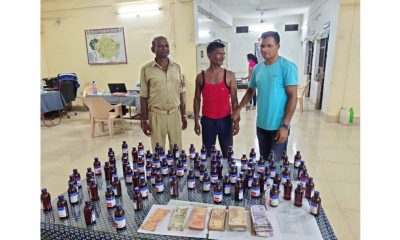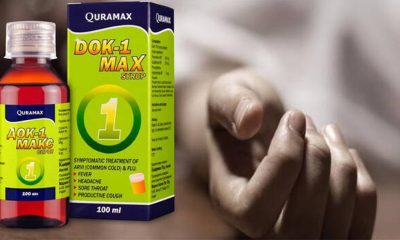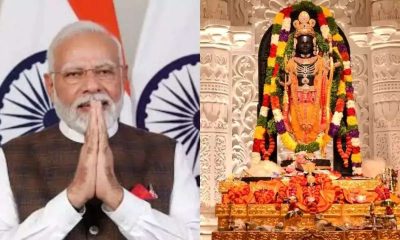Latest world news
18 children died after consuming India-manufactured cough syrup, says Uzbekistan
The drug was given to all children without a doctor’s prescription.
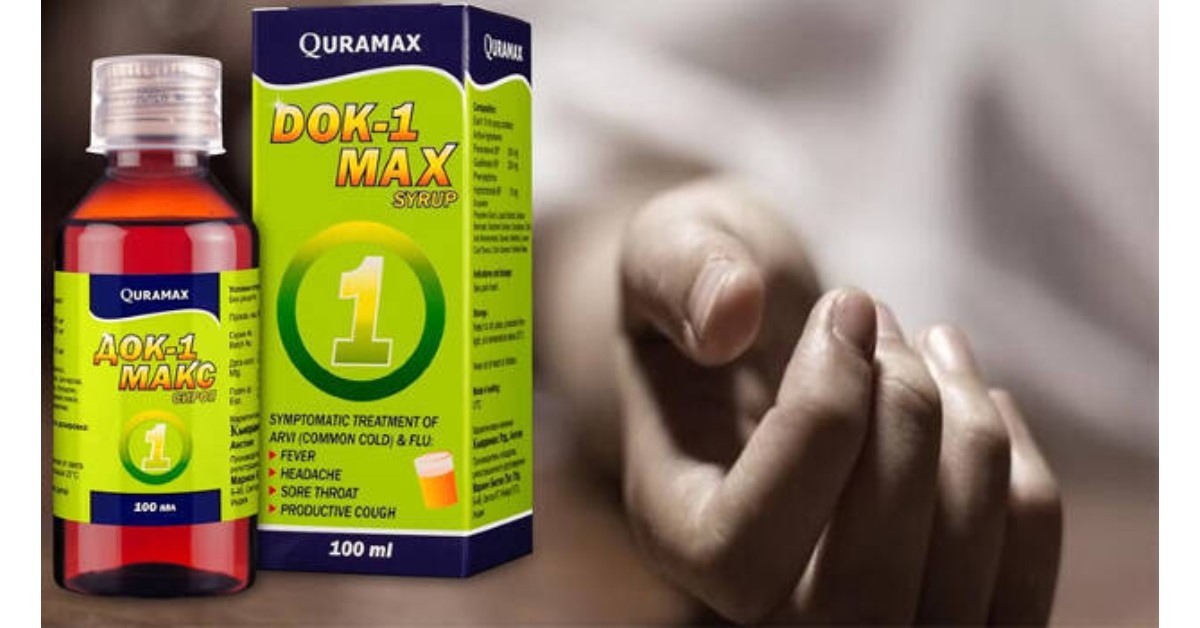
After Gambia, Uzbekistan Health Ministry claimed on Tuesday that at least 18 children in the country have allegedly died after consuming India-manufactured cough syrup. The side effects of the syrup were reported in the city of Samarkand.
The health ministry issued a statement stating that 18 out of 21 children who consumed Noida-based Marion Biotech’s Doc-1 Max syrup while suffering from an acute respiratory disease died.
The ministry further stated that the company has marketed the drug on the company’s website as a treatment for cold and flu symptoms. The reports state that the children consumed excessive amounts of cough syrup, which contained ethylene glycol, which is considered a toxic substance.
Uzbekistan Health Ministry said the syrup was imported into the country by Quramax Medical LLC. It further stated that the deceased children took this drug at home for 2-7 days 3-4 times a day, 2.5-5 ml, which exceeds the standard dose of the drug for children.
Read Also: Indian passengers fight over seats on Kolkata-Bangkok flight, video viral | WATCH
The drug was given to all children without a doctor’s prescription. Since paracetamol is the drug’s primary ingredient, Doc-1 Max syrup was improperly used as an anti-cold treatment on the pharmacy sellers’ advice, which caused the patients’ conditions to worsen, it added.
Preliminary laboratory tests have revealed that this series of Doctor-1 Max syrup contains ethylene glycol. The drug is toxic, and 1–2 ml/kg of a 95% concentrated solution can cause major health changes in the patient, such as vomiting, fainting, convulsions, cardiovascular problems, and acute kidney failure.
It further added, in fact, paracetamol should only be used at a body temperature of 38-38.5 C and above 1 or 2 times a day, 100-125 mg for a child under the age of one year, 200 mg for children aged 1-3 years and 250 mg – from 3 to 5 years. At normal body temperature, taking this drug is strictly prohibited.
According to the reports, a criminal case has been filed against officials of Quramax Medical and the State Center for Expertise and Standardization of Medicines under Article 186-3 of the Criminal Code (Violation of the order of retail sale of medicines containing potent substances).
Earlier this year, 66 children in Gambia allegedly died after consuming cough syrups manufactured by Haryana-based Maiden Pharmaceuticals.
Indian Railways change timing of many trains, more than 250 trains cancelled today, know here
Howrah: Jharkhand based YouTuber, actor shot dead, her husband arrested
India News
Sri Lankan Minister Douglas Devananda says statements on reclaiming Katchatheevu island from Sri Lanka have no ground
Devananda told the media on Thursday that it is not unusual to hear such claims and counterclaims about Katchatheevu as elections are taking place in India.
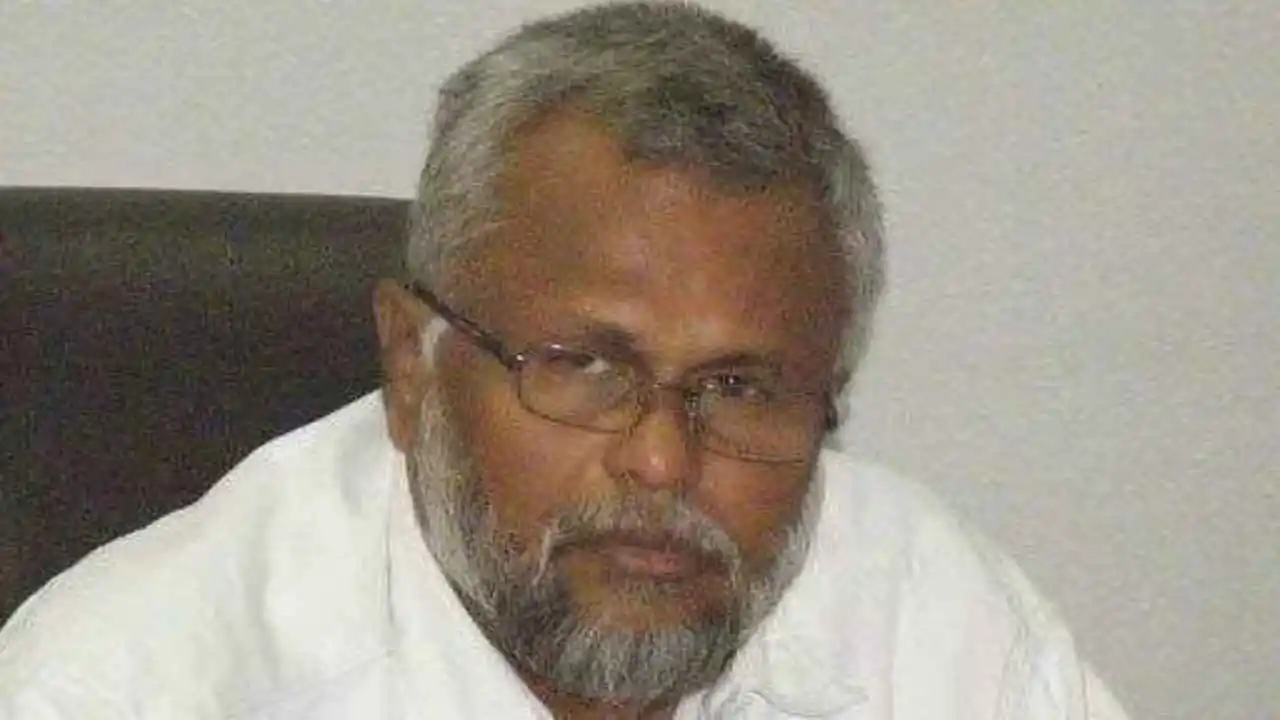
Sri Lankan Minister Douglas Devananda has said the statements from some political leaders in India on reclaiming Katchatheevu from the island nation have no ground. He told the media on Thursday that it is not unusual to hear such claims and counterclaims about the strategic island as elections are taking place in India.
The Sri Lankan Minister said he thought India is acting on its interests to secure this place to ensure Sri Lankan fishermen would not have any access to that area and that Sri Lanka should not claim any rights in that resourceful area. According to the 1974 agreement, Devananda said Indian and Sri Lankan fishermen can go fishing in the territorial waters of both countries until the pact was reviewed and amended in 1976.
The amended agreement resulted in fishermen from both countries being barred from fishing in neighboring waters. India’s ministry of External Affairs (MEA) on Thursday steered clear of the row surrounding Katchatheevu island. To a volley of questions on the Katchatheevu issue, MEA spokesperson Randhir Jaiswal reffered to External affairs Minister S Jaishankar’s recent comments on the matter.
He said he would like to talk about the issue that has been raised. He added the External Affairs minister has spoken to the press here in Delhi and also in Gujarat and has clarified all the issues. He said everyone should look into the press engagements and they would find the answers to their questions there.
The remarks from Devananda, a Sri Lankan Tamil, came days after the Narendra Modi government accused the Congress and its ally DMK in Tamil Nadu of overlooking national interests by handing over Katchatheevu island to Sri Lanka in 1974. The BJP has also been slamming the 2 parties for not ensuring the rights of the fishermen wanting to fish in waters around the island.
India News
US reiterates its call for fair, transparent, legal process for Delhi CM Arvind Kejriwal, speaks on Congress frozen accounts
The US spokesperson said that they are also aware of the Congress party’s allegations that tax authorities have frozen some of their bank accounts in a manner that will make it challenging to effectively campaign in the upcoming elections.
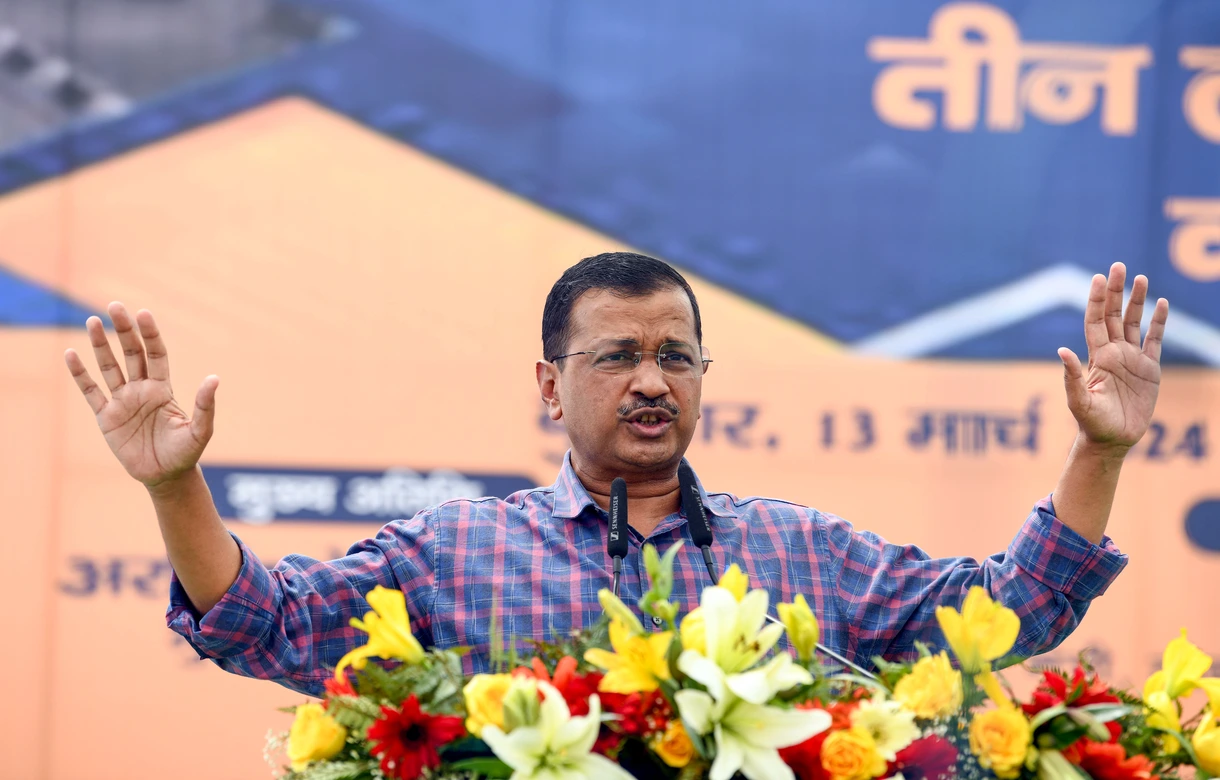
A day after India summoned an US diplomat over their remarks on the arrest of Delhi Chief Minister Arvind Kejriwal in the liquor policy case, the US reiterated its call for fair, transparent, timely legal processes on Wednesday.
Responding to questions on India summoning Gloria Berbena, the US Acting Deputy Chief of Mission in New Delhi, US State Department spokesperson Matthew Miller said that they will continue to follow these actions closely, including the arrest of Delhi Chief Minister Arvind Kejriwal. Notably, the meeting at the foreign ministry’s South Block office lasted nearly 40 minutes yesterday with India objecting strongly to the US remarks on the arrest of Arvind Kejriwal.
Matthew Miller also responded to a question on the Congress party’s frozen bank accounts. The US spokesperson said that they are also aware of the Congress party’s allegations that tax authorities have frozen some of their bank accounts in a manner that will make it challenging to effectively campaign in the upcoming elections. He added that the US encourages fair, transparent and timely legal processes for each of the issues.
Arvind Kejriwal was arrested last week by the Enforcement Directorate (ED) in connection to the Delhi liquor policy scam. Earlier, AAP leaders Manish Sisodia, Satyendar Jain and Sanjay Singh were arrested in the same case.
The External Affairs Ministry had earlier stated that states are expected to be respectful of the sovereignty and internal affairs of others, and this responsibility is even more so in case of fellow democracies, adding that it could otherwise end up setting unhealthy precedents.
The Ministry further emphasized that India’s legal processes are based on an independent judiciary which is committed to objective and timely outcomes. It mentioned that casting aspersions on India’s legal procedure is unwarranted.
The United State’s remarks followed days after Germany’s Foreign Office stressed that Delhi CM Arvind Kejriwal is entitled to a fair and impartial trial. The Indian government labelled their remark as blatant interference in internal matters.
Latest world news
5 Chinese nationals killed in suicide bomb attack in Pakistan
This is the third major attack on Chinese interests in Pakistan within a week.
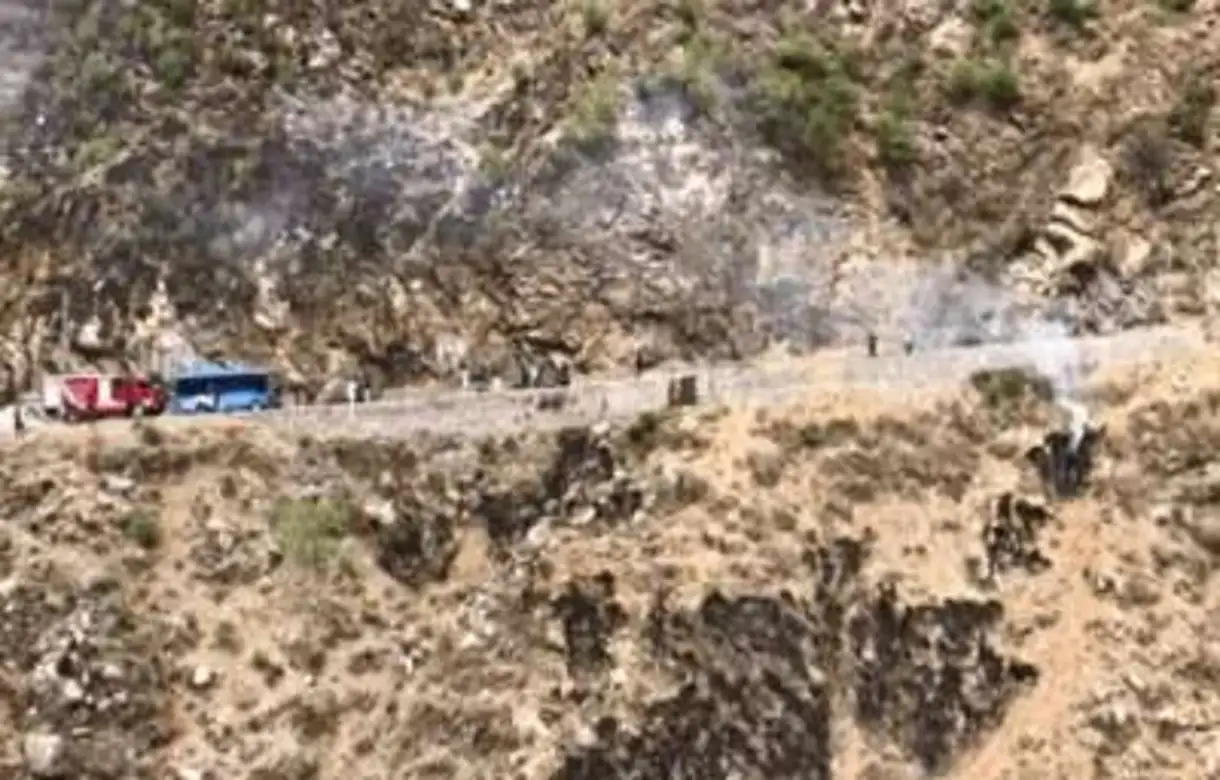
Nearly five Chinese nationals were killed in an explosion during an attack on their convoy by a suicide bomber in northwest Pakistan on Tuesday. Reportedly, the suicide bomber rammed an explosives-laden vehicle into a convoy of Chinese engineers travelling from Islamabad to their camp in Dasu, situated in the Khyber Pakhtunkhwa province.
Regional police chief Mohammad Ali Gandapur said that five Chinese nationals and their Pakistani driver were killed in the attack. As yet, none has claimed responsibility for the attack. Bisham Station House Officer (SHO) Bakht Zahir asserted that the incident was a suicide blast and the authorities concerned were collecting the evidence.
The Station House Officer further added that security arrangements were tightened at the spot and the bodies were being shifted to a hospital. He added that they will investigate from where and how the vehicle of a suicide bomber came and how it happened. Notably, this is the third major attack on Chinese interests in Pakistan within a week.
Previously, two attacks hit an airbase and a strategic port in the southwest province of Balochistan where China is investing billions in infrastructure projects. Several Chinese engineers and Pakistani construction workers have for multiple years been working on hydroelectric projects as part of Beijing’s Belt and Road Initiative in the western province of Khyber-Paktunkhwa.
Notably, Dasu is home to a significant dam project, has been a target of previous attacks. Earlier in 2021, the attack in Dasu resulted in the deaths of nine Chinese nationals, along with two Pakistani children. The incident occured when a bus carrying Chinese engineers and workers to the Dasu Hydropower Project site was targeted.
There was confusion surrounding the nature of the attack initially, with some reports suggesting it was a bus accident. Nonetheless, subsequent investigations revealed that it was indeed a terrorist attack. The bus was hit by a blast, leading it to plunge into a ravine.
-
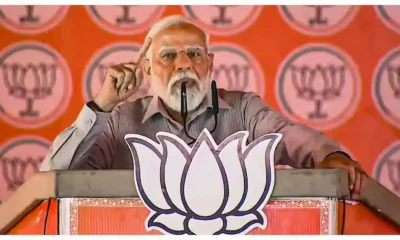
 2024 Lok Sabha Elections23 hours ago
2024 Lok Sabha Elections23 hours agoPrime Minister Narendra Modi says RJD is responsible for destroying Bihar, slams Lalu’s party over various corruption cases
-

 Cricket news24 hours ago
Cricket news24 hours agoIPL 2024: Travis Head smashes brilliant century, Pat Cummins takes 3 wickets as Sunrisers Hyderabad defeat Royal Challengers Bengaluru by 25 runs
-
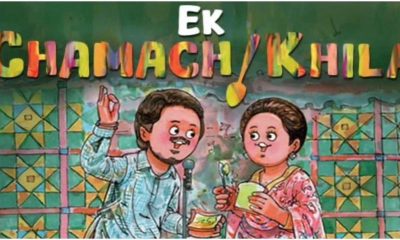
 Entertainment21 hours ago
Entertainment21 hours agoAmul pays tribute to Diljit Dosanjh, Parineeti Chopra starrer Amar Singh Chamkila
-
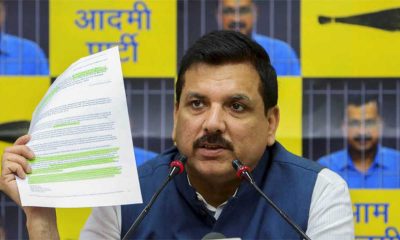
 India News23 hours ago
India News23 hours agoMy name is Arvind Kejriwal and I am not terrorist: Sanjay Singh reads Delhi CM’s message from Tihar Jail
-
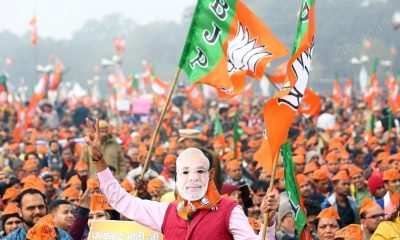
 2024 Lok Sabha Elections22 hours ago
2024 Lok Sabha Elections22 hours agoLok Sabha elections 2024: BJP releases 12th list of candidates, Udayanraje Bhonsle to contest from Satara
-

 Entertainment19 hours ago
Entertainment19 hours agoVikrant Massey’s 12th Fail to release in over 20,000 screens in China
-

 Food20 hours ago
Food20 hours agoBengaluru outlet selling gold and silver panipuri goes viral
-
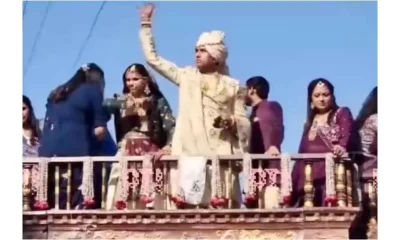
 India News21 hours ago
India News21 hours agoGujarat Jain couple donate Rs 200 crore wealth, renounce world

